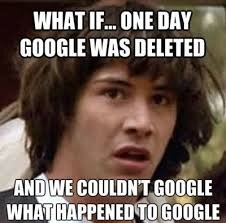Research Retrieval Skills
“Google has played a central role in re-engineering our understanding and expectations of online experience. Ours is increasingly a ‘culture of search’ where the technologies of discovery have become part of everyday life” (Tim Sherratt, Seams and Edges, 2015)
For my final digital skills development goal I wanted to improve my information retrieval skills using more advanced search functions such as truncated and boolean.
Some of the resources I used included Google Search Tricks - Beginners Guide to Boolean Search - and Search Tips – Truncated and Boolean
What I discovered is ‘AND’ (narrows search), ‘OR' (broadens search), and ‘NOT’ (narrows search). Truncated means adding * to the end of a word to find all variations.
This all felt familiar. I remember being taught these ‘tricks’ when the ‘internet’ and search capability was first introduced. Funny how we’ve moved away from it as our ‘reliance’ and ‘trust’ in a simple google search has become the default core.
“It’s not just the simplicity of that single search box, it’s our faith that search will just work.”
“Digital technologies continue to offer a beguiling vision of universal access. Everyone, everywhere will be able to find and use our cultural collections. Hidden riches will be revealed. Obstacles to discovery and exploration will be removed. " (Tim Sherratt, Hacking Heritage, 2018)
Screenshot example of a truncated and boolean search conducted
Like with the other digital skills, there is room to take this one much further. I would like to learn about and explore more specific GLAM databases and resources. For example, I would like to become more familiar with different research journals to improve my studies and knowledge. This learning journey will continue.


